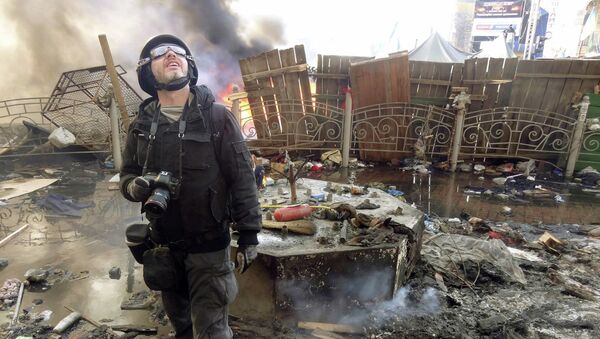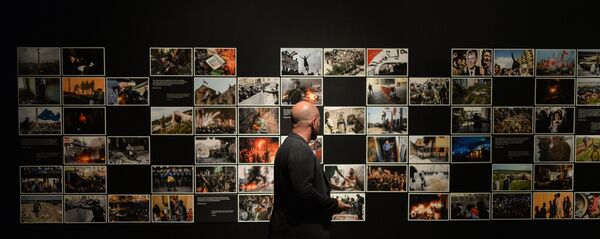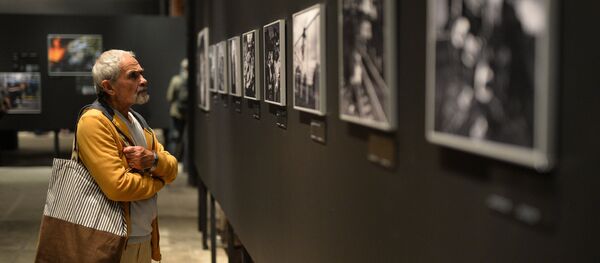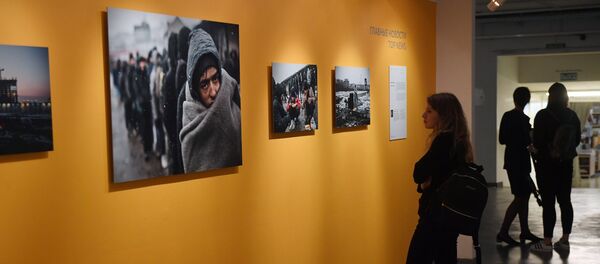Its main goal is to support young photographers and draw public attention to the challenges of modern photojournalism. The awards ceremony and the opening of the photo exhibition are slated to take place in November.
The event was first organized in December 2014 in memory of Russian photojournalist Andrei Stenin, who was killed the same year while on assignment in the Donetsk region in eastern Ukraine after his car was shot with an artillery shell and exploded on a highway. Sputnik discussed the contest as a platform for photojournalism with photographer Phandulwazi Jikelo, the winner of the Andrei Stenin International Press Photo prize in 2017.
Sputnik: What are your thoughts on the Andrei Stenin photo contest as a platform for photojournalism?
Phandulwazi Jikelo: I think it is a good opportunity for young photographers to actually showcase their work, to promote themselves. And it’s very important for young photographers to be invited, to be given a chance to be part of the world events; that is more important than to promote them.
Sputnik: You received a reward last year for your work. How important was this victory for you?
I was promoted, and then I actually made it to the finals and eventually won it. It changed my life a lot. When I got back home I had so much to talk about it and the experience I’d gained since going overseas and actually seeing other people do it. I could talk about it with other young photographers.
It was very important; my work was shown in Russia and in other countries where the exhibition took place. That is very important and it improved me as a person.
Sputnik: Your photos captured turmoil in South Africa, what did it feel like to be in the epicenter of the protests? Could you share your experiences and recollections about the most memorable part of your work?
There’re times when the situation is volatile and we just need to go and use our minds. A bit of experience that I’ve learned was from other guys who were doing the things like for a long time.
When I go to a protest I’m aware of what might happen and what to expect, one need to be careful and you can’t get protection from the police; they are also busy with the protest. So, one needs to be aware and always be next to someone when you’re new at events like these.
Sputnik: What makes you risk your life and go to these dangerous places?
Phandulwazi Jikelo: It’s something when you really want to go that extra mile and you’re really motivated. As photojournalists we’re the eyes and the ears of the people on the ground so we need to go out and tell the story.
We need to go out there and be the ears of the people, we need to go out there and bring them something that they don’t understand. We need to inform them, to educate them about what is happening.
Phandulwazi Jikelo: My father is still not 100% happy with my career but he supports me anyway. I remember when I started he wasn’t so keen on what I was doing; he didn’t understand much of what I was doing because of the dangers of the work.
And he didn’t see the purpose that was driving me to be a photographer and actually cover events.
Sputnik: In your personal view, how important is photojournalism as a means of drawing attention to events surrounding us?
Phandulwazi Jikelo: It means a lot and it’s very important for us to be, like I said earlier, the eyes and ears and tell the story. To draw attention, we need to go out and tell about it; we need to draw this to a person. We need to tell the story to the next person so that they look at our work and see what exactly was happening at that event.
We don’t just go there to be part of it but we need to draw this to the next person that was not part of the event or the person that was sitting at home watching the TV, reading the newspapers at that day and when they see the stuff that you bring they need to understand exactly what was happening there in our work. I think that’s really important.
Views and opinions expressed in this article are those of Phandulwazi Jikelo and do not necessarily reflect those of Sputnik.






